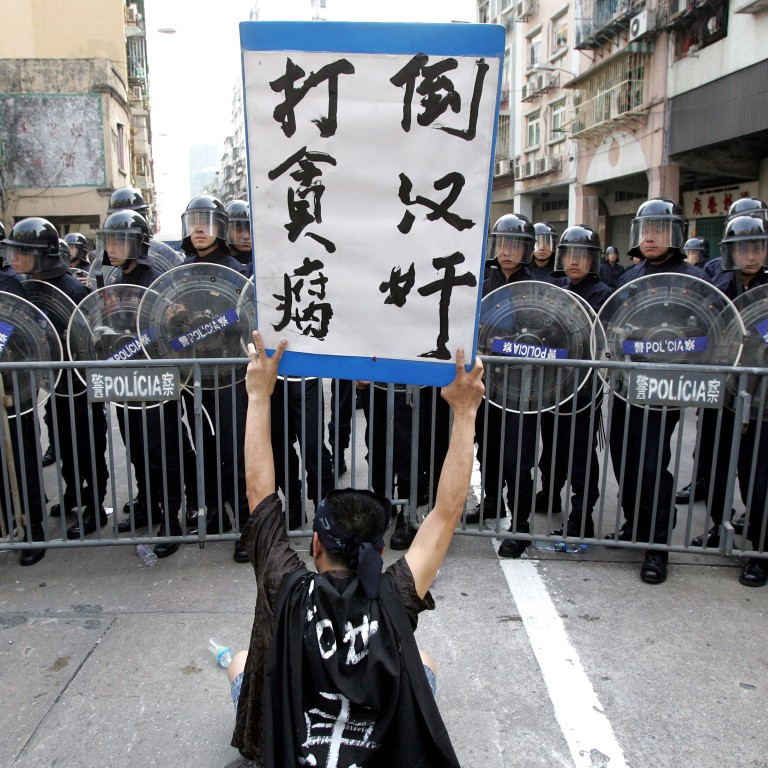
'No need to be so stupid': Macau academic cautions Hong Kong against importing labour
Macau academic says Hong Kong should look at problems imported workers have caused there before launching any such scheme of its own
Hong Kong should closely study the problems imported labour have brought to Macau before looking elsewhere to boost its workforce, an academic in the former Portuguese colony says.

But Tsui Wai-kwan, a well-known businessman and lawmaker, dismissed Choi's remarks and said Asia's answer to Las Vegas would not be enjoying its present boom without imported workers.
Labour imports are a hot topic in Hong Kong after the government suggested bringing in more workers when it launched a consultation on population policy in October.
"The importation will intensify the social problems in Hong Kong and the cultural conflicts between Hongkongers and mainlanders," Choi said. "I see no need for Hong Kong to do something so stupid."

According to figures from Macau's Human Resources Office, there were 54,459 low-skilled non-local workers in Macau in 2010. In October this year, the number reached 108,139, with 23,633 in the construction industry, and 14,563 in the wholesale and retail trade.
Choi said Macau started to allow labour imports in the 1980s, when its manufacturing industry was booming. But Choi said the new arrivals had hampered local workers' prospects for pay rises and promotions.
"People in Macau do not usually protest. But many people take to the streets on May 1 every year because of their anger about this labour issue," he said.
"The government has been giving away cash handouts to soothe their anger. But can you imagine what could happen if the government is not financially capable of such handouts?"
Macau announced a 9,000 pataca handout for each permanent resident this year, with 5,400 each for non-permanent residents.
Bolstered by the influx of imported workers, Macau's economy has moved so fast that inflation has become a huge problem. For example, Choi says, even academics struggle to buy a flat there.
"Hong Kong is facing enough problems already. It should not follow in Macau's footsteps."
But Tsui, a standing committee member of the Macao Chamber of Commerce, said it was wrong to say the influx of workers had brought more harm than good.
He cited government figures showing that in 2002, the unemployment rate was 6.3 per cent and the median income for the workforce was HK$4,672 a month. By last year, the unemployment rate had dropped to 2 per cent and the median income had soared to HK$11,000.
"If the importation was not allowed back then, Macau would not be as bustling as it is today," he said.
But he said Hong Kong should take a gradual approach to bringing in workers.
"If the proportion of imported workers suddenly goes up to 26 per cent, like the situation in Macau, that may affect the locals. So it should be done gradually."
Hong Kong employers can use the Supplementary Labour Scheme to hire workers from abroad. But by the end of last year, just 2,415 people had come under the scheme.

